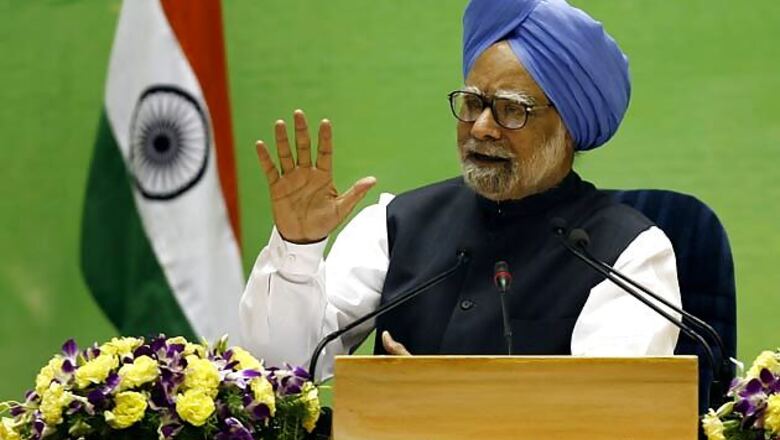
views
Mumbai: Affirming his government's commitment to working with judiciary for improving delivery of justice, Prime Minister Manmohan Singh on Saturday said the Law Commission is looking at improvements required in the court procedures for a better criminal judicial system.
He also said an Inter Ministerial Group was examining what changes were needed in the Negotiable Instruments Act along with other measures to check increasing litigation arising out of cases of bouncing cheques.
"We have taken a number of initiatives to bring about improvements in the justice delivery system... A group under the Chairman of Law Commission is looking at improvements that are required in court procedure and processes for a better criminal judicial system," he said in his address at the concluding ceremony of sesquicentennial celebrations of the Bombay High Court.
The Government launched National Mission for Justice Delivery in 2011 with the twin objectives of increasing access by reducing delays and arrears and enhancing accountability.
A Constitution Amendment Bill for raising the age of retirement of Judges of High Courts is before Parliament, Singh said.
Also, a comprehensive proposal has been formulated for establishment of an All India Judicial Service, Prime Minister told a distinguished gathering of legal luminaries including former and current judges of High Court and Supreme Court.
"The overall pendency of cases in various courts of the country has declined by more than six lakh over the period July to December 2011. The Bombay High Court and its subordinate courts have contributed handsomely to this achievement, reducing their pendency by five lakh cases annually since 2010," Singh said.
Stressing that all three organs (Executive, Judiciary and the Legislature) of the government must work together to ensure social, economic and political justice for citizens, Singh said Judiciary had a direct role in this task - that of upholding the rule of law and ensuring that people enjoyed fundamental rights like right to life and personal liberty and right to equality.

















Comments
0 comment